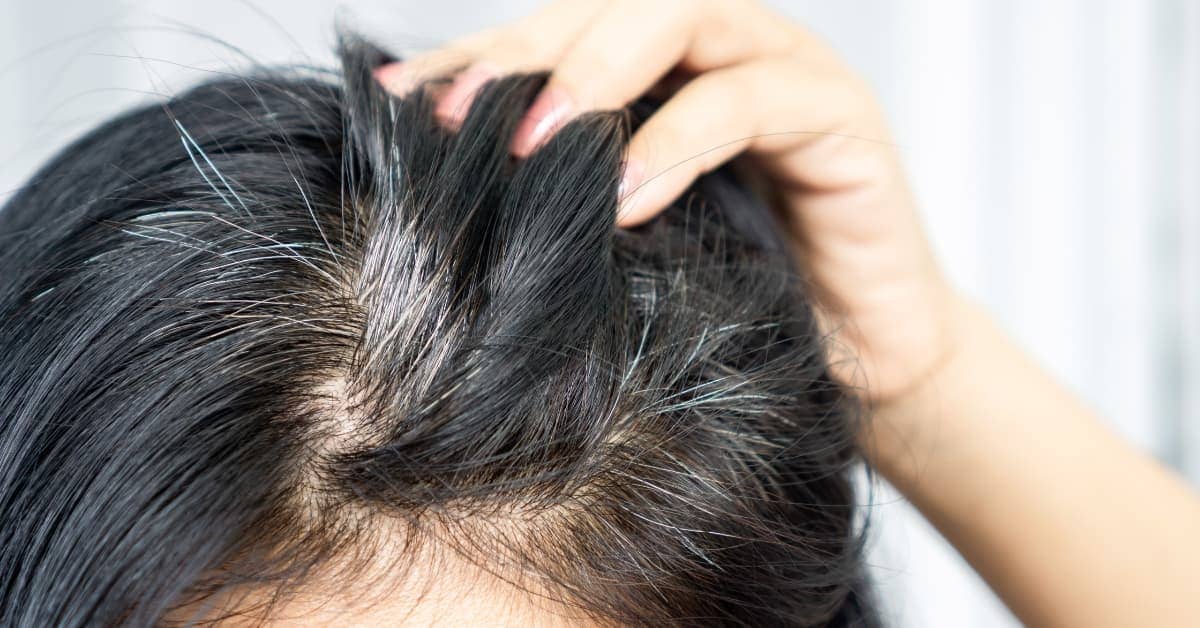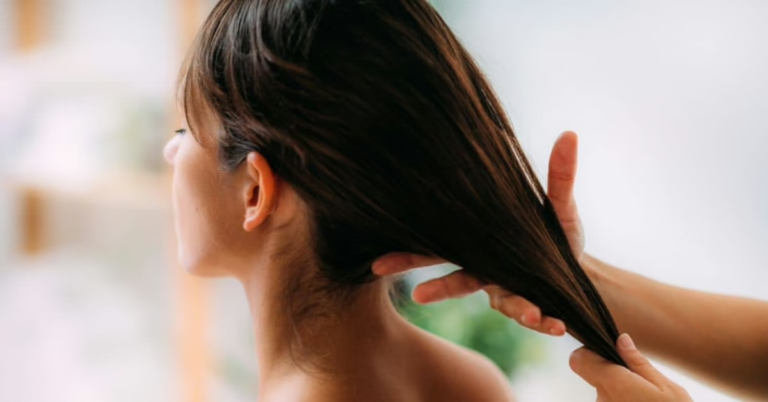Understanding Hair Loss: Causes and Prevention
Hair loss is a normal part of the hair growth cycle, with most people losing between 50 to 150 hairs a day. However, excessive shedding and noticeable thinning can be a cause for concern. It’s important to pay attention if the amount of hair loss exceeds your typical daily experience. Additionally, increased scalp visibility, along with sensations of tingling or soreness, may indicate the onset of a less common form of hair loss and warrants careful consideration. To understand the potential causes of hair loss, it’s advisable to consult with hair health experts. Professional care should be sought before trying any self-medication or over-the-counter treatments. If you’re experiencing significant hair loss while brushing or notice hair strands on your clothing or clogging the shower, it may be time to consult an expert. However, if you experience scalp pain or notice bald spots anywhere on your scalp or body, seeking professional advice is recommended.
Why is My Hair Falling Out?
Understanding why hair loss happens can help you take appropriate steps to minimize it. Various factors contribute to hair thinning, including genetics, lifestyle, and health conditions. Below are some of the common causes of hair loss and tips on how to manage them:
Traction alopecia is a type of hair loss caused by repetitive stress or tension on the hair follicles. This stress compromises the follicles’ ability to produce and maintain long, strong, healthy hair strands. Hairstyling practices such as tight ponytails, braids, clip-in hairpieces, and weaves are often the culprits. Consistent abuse of the follicles can lead to their diminishment, reducing blood flow and nutrient delivery to the hair bulb and shaft, resulting in fine, fluffy hair or sparse areas.
1. Traction Alopecia
Certain groups, like Afro Caribbean women, are particularly at risk due to their preference for intricate hairstyles and the natural fragility of African hair types. The elliptical shape of the hair follicles in these types can make them more susceptible to hair loss from tight styling.
To prevent traction alopecia, it is important to educate yourself about your hair’s characteristics, including density (number of hairs or follicles), diameter (thickness), porosity levels, and elasticity. Understanding your hair’s behavior can help you avoid practices that might harm it.
Tip: Avoid tight hairstyles and opt for looser alternatives. Change your style frequently to prevent repetitive tension, and be gentle with your hair during styling.
2. Central Centrifugal Cicatricial Alopecia (CCCA)
Central centrifugal cicatricial alopecia (CCCA) is a type of hair loss particularly common in Afro-Caribbean hair types, often presenting as a gradual circular pattern of thinning on the crown of the head. This condition involves a genetic component, but it is often exacerbated by the traditional use of hot combs, chemical relaxers, and excessive tension from braids and extensions. CCCA can lead to permanent hair loss due to scarring of the hair follicle, making early treatment and reducing such styling practices crucial once identified.
Tip: A helpful tip for those struggling with very fine hair or areas of sparseness is to reconsider their hairstyle. It is suggested that individuals with finer hair should avoid growing it too long, as longer hair can appear lank, straggly, and unhealthy. Instead, focus on creating layers within shorter styles to add height and volume. However, very short layers are not recommended, as they may accentuate the fineness of the hair.
3. Stress and Lifestyle Factors
Stress can impact almost every aspect of mental and physical well-being, and hair is no exception. Stressful circumstances raise levels of the hormone cortisol, which triggers the body’s natural “fight or flight” response. This negatively impacts the hair growth cycle by channeling the body’s resources elsewhere, such as to the muscles and brain, and by affecting nutrient absorption, disrupting hormone levels, and impacting scalp health. This can lead to a hair-shedding condition known as telogen effluvium, where the normal growing and shedding cycle is disrupted, causing less hair to be in the growing phase and more in the resting and shedding phases. Once the stress-causing lifestyle factors are addressed, the body should recover from the disruption on its own.
Hair thinning may also be a sign of deficiencies in iron, vitamin D, and B12, or a lack of protein in the diet. The latter is especially noteworthy as the protein keratin provides the strength and structure of hair.
Tip: Prioritize your health by managing stress and ensuring a balanced diet rich in protein, iron, and omega-3 fatty acids. Supplements can be helpful, but focus on obtaining nutrients from food first. If hair loss persists, seek medical advice.
4. Illness or Health Conditions
Up to 80% of permanent hair loss is attributed to genetic factors. It’s advisable to discuss with your family members to determine if thinning hair is a hereditary issue, such as male or female pattern hair loss. In some cases, hair loss can result from medical conditions like alopecia areata, an autoimmune disorder that is distinct from traction alopecia.
There has also been a noted connection between coronavirus and hair loss. A survey by the UK’s Institute of Trichologists, an organization focused on hair and scalp disorders, reported that 79% of its members observed cases of ‘post-COVID hair loss’ in their clinics. This condition can be linked to high fevers and loss of appetite caused by the virus, leading to temporary excessive hair shedding. Additionally, stress induced by the pandemic may have contributed to numerous cases of telogen effluvium, a condition characterized by disrupted hair growth and shedding cycles.
Tip: If you’re experiencing substantial hair loss or thinning, consult a healthcare professional to explore potential underlying health issues. They can provide insights into your general health, hormone levels, and offer appropriate treatments.
While it might be tempting to self-medicate or try various treatments for hair thinning, expert guidance is crucial. A trichologist can offer personalized solutions tailored to your hair type and condition. If you notice an increase in scalp visibility, tingling sensations, or bald spots, seek professional help. Hair loss is a common concern that can stem from various causes. By understanding the factors that contribute to hair thinning, you can take proactive steps to maintain healthy hair. Regular consultations with a trichologist, adopting healthy hair practices, and managing stress are key strategies to minimize hair loss and promote hair growth.
How Organix Mantra Follifuel Hair Growth Series can Help
The Organix Mantra Follifuel Hair Growth Series is a comprehensive hair care solution designed to promote healthy hair growth and strengthen roots. This series includes a Follifuel 2-in-1 Shampoo, Follifuel Hair Masque, and Follifuel Serum, all formulated with a blend of nature and science-backed ingredients to support hair health.
Key Ingredients and Benefits
- Anageline: Known for its ability to promote hair growth by stimulating the hair follicles and extending the hair’s natural growth cycle.
- Hairgenyl: A powerful ingredient that revitalizes hair cells and encourages the production of keratin, leading to stronger, fuller hair.
- Redensyl: Scientifically proven to improve hair density and reduce hair loss by targeting hair stem cells and dermal papilla fibroblasts, encouraging hair growth at the root level.
- Rosemary: This natural ingredient is renowned for improving circulation in the scalp, which helps deliver essential nutrients to hair follicles, promoting healthy hair growth.
- Hibiscus: Rich in vitamins and amino acids, hibiscus strengthens hair roots, prevents breakage, and adds shine and luster to the hair.
- Curry Leaves: Known for their high nutrient content, curry leaves help in strengthening hair roots, preventing premature graying, and maintaining natural hair color.
How It Works
The Follifuel Hair Growth Series works synergistically to nourish and fortify hair from root to tip.
1. Follifuel 2-in-1 Shampoo: Cleanses and invigorates the scalp, removing impurities while delivering essential nutrients that promote hair growth and improve hair texture.
2. Follifuel Hair Masque: Deeply conditions and hydrates, repairing damaged hair and enhancing strength and elasticity. The masque revitalizes hair, making it more resilient to breakage.
3. Follifuel Serum: A concentrated treatment that penetrates the scalp to boost hair density and volume. The serum works to stimulate hair follicles, encouraging robust growth and healthier, thicker hair.
Combining the power of nature with scientifically proven ingredients, the Organix Mantra Follifuel Hair Growth Series is designed to deliver visible results. Whether you’re looking to promote hair growth, strengthen roots, or enhance overall hair health, this series offers a targeted approach to achieving luscious, vibrant hair.







